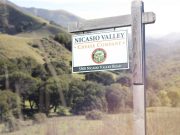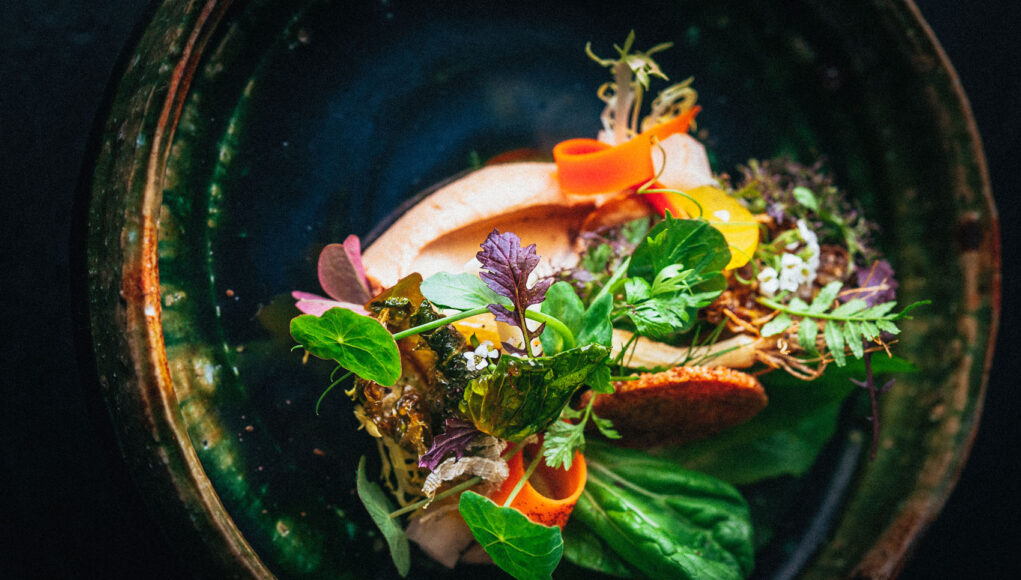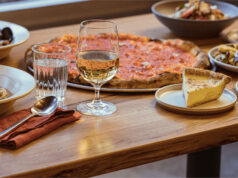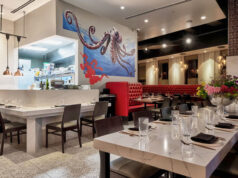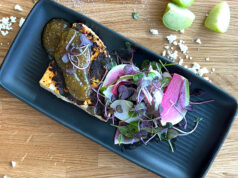Five years after its opening, Single Thread, the Three Michelin Star and One Green Michelin Star accolade-a-plenty culinary unicorn of husband and wife team Chef Kyle and Farmer Katina Connaughton, is still on the tips of everybody’s lips.
Guided by their trademark philosophy of Omotenashi (spirit of selfless hospitality), the talented team of Single Thread graces their guests with much more than mind-blowing, hyper-seasonal, 10 course dining experiences. What Kyle and Katina (and tribe) deliver is much more personal. Beyond the life-changing, skillfully crafted, whimsy-forward dishes, what they want you to be present to is yourself.
A conversation with “Single Thread” Owner-Chef
Kyle Connaughton
The onion flower is the symbol and logo of Single Thread because it is the one vegetable that Single Thread’s five-acre farm can grow year-round. Echoing this, the symbolic un-peeling of the onion from the play Peer Gynt, by Norwegian playwright Henrik Ibsen, is a metaphor for peeling back the layers of our identity. How has Single Thread peeled back the layers of your identity as a chef and as a person?
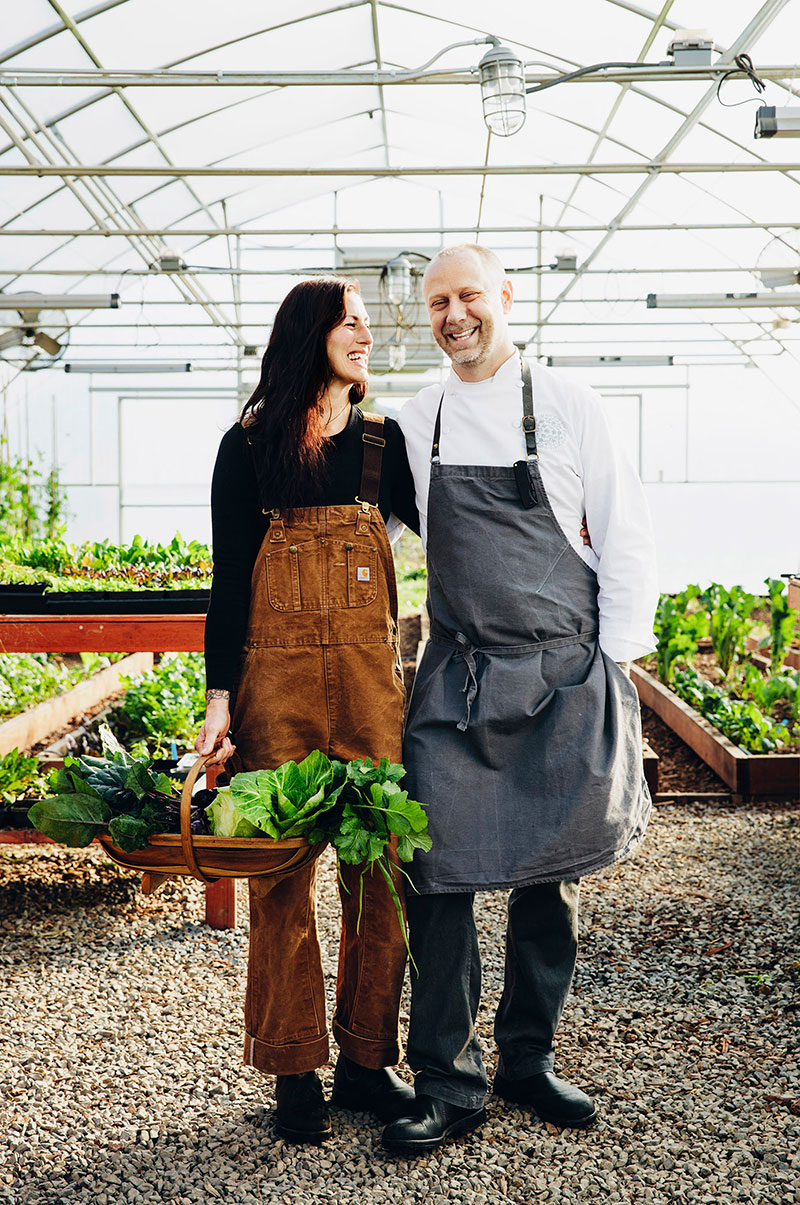
CKC: That’s really great question. That’s quite an opener! Katina and I opened Single Thread in our 40s, so we had a pretty big perspective. I started working in restaurants as a teenager in a sushi bar as soon as they would let me. Since then, I was lucky enough to work in a lot of great, diverse restaurants ranging from very classic Japanese cuisine at Michel Bras’ Toya Japan in Hokkaido, where I deepened my knowledge of kaiseki, izakaya, soba, and sushi, to California cuisine, to very Modernist cooking at The Fat Duck with Heston Blumenthal.
In many ways, Single Thread is a combination of work and life experiences of living in Japan and Europe and being from California. I think this has allowed me as a chef and Katina as a farmer to really showcase exactly what our vision is. It was really great to spend time learning other people’s cuisine and other people’s voices and to then create our own.
Kyle & Katina’s Connection-Thread
CKC: We’ve been on this journey together since we were 15 and 16 years old. We had our kids when we were very young. They traveled with us to Japan when we were in our 20s and then to England right afterward. We were in many ways all growing up together. We were really on this journey, the four of us, learning and growing and figuring these things out.
It’s kind of obvious how a chef and a farmer complement each other. However, we’ve also had this whole lifetime of shared experiences all over the world: dining at other fine dining restaurants and seeing what we like or don’t like, experiences about family, friendships, atmosphere, and about creating a certain narrative. We wanted to bring this feeling of warmth; to really feel like the restaurant was less like a Three Michelin Star restaurant and more like you’re going to a dinner party in someone’s home. I think the hospitality that we do is unique. The ‘single thread’ really stems from our long history of life experiences together.
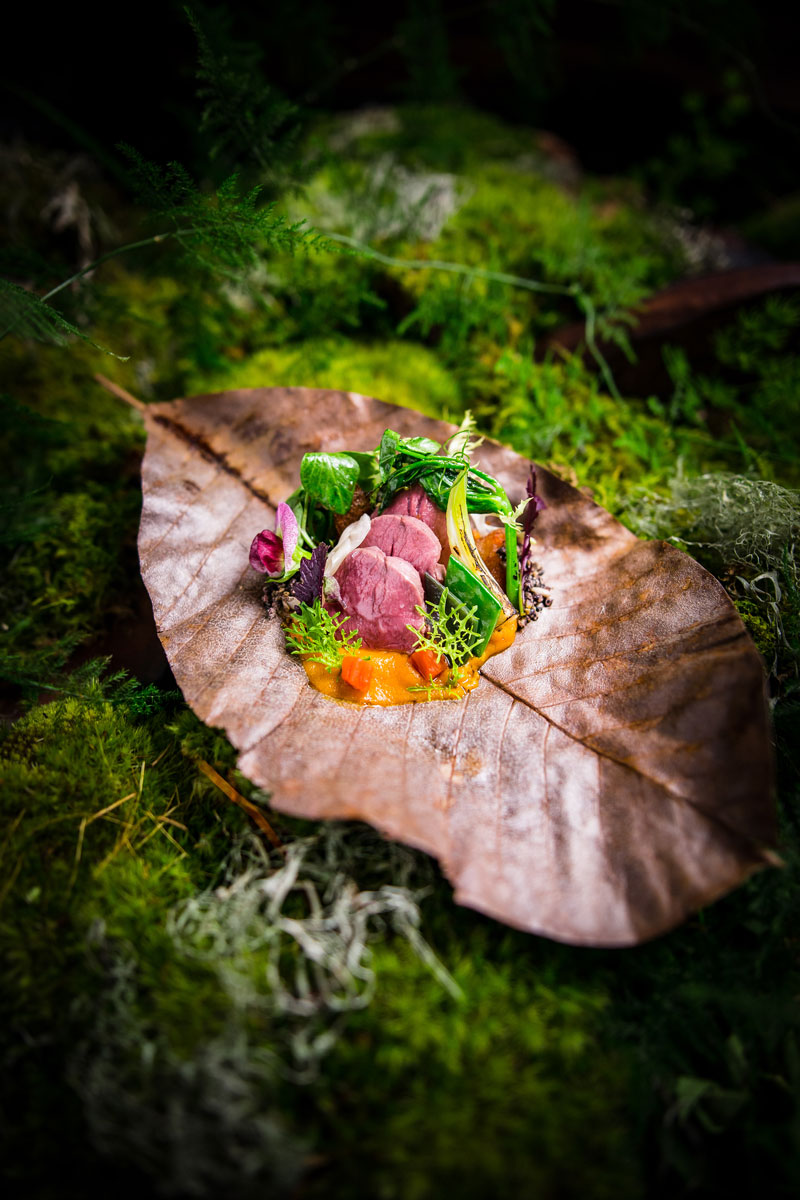
Secret Ingredient
CKC: The biggest thing is we’re best friends. We’re married and we’re partners, but we’re buds. We literally tell each other, ‘You’re my best friend’. Saying ‘I love you,’ is important but also saying, ‘You’re my best friend,’ is equally important. We actually want to hang out with each other. We have a lot of hobbies that we share. We enjoy food, traveling, our kids, and people. We do have somewhat different personalities. Katina is very nurturing. She’s full of empathy and compassion. I’m very ambitious and artistic and methodical. So we teach each other a lot, and we’ve become more like each other. We’ve really absorbed each other’s strengths.
When it comes to the work the important thing is that we have balance. There isn’t one of us who is out of balance to the other because we’re each 100% reliant on the other. I’m 100% reliant on Katina and the farm, her farm team, and the results that they get. She’s 100% reliant on me to utilize the products responsibly and thoughtfully; in a way that aligns with her harvest in the season so we don’t waste anything.
I think we push each other to do better. We can criticize each other in a really constructive way, that doesn’t have anything else attached. We both want the same thing which is the best for our guests and for our team.
One thing that we both share historically is that we are both low stress, and just very calm, and generally always in a good mood. , This really helps when dealing with things that go wrong, which is frequent. We have 80 employees. The level is hard. Mistakes are happening all the time. We try to make sure that all of them turn into teaching moments to get better. But neither one of us has a volatile personality. In fact, we’re probably a little too chill.
We present a very unified front to the team so that they see that there’s a lot of love and respect between us. Not, ‘Hey, they’re arguing in front of us and it’s awkward and uncomfortable.’ Or, ‘Hey if I don’t like what ‘mom’ says I’ll go and see what ‘dad’ says.’ Our team is aware of our respect and admiration for each other all the time. 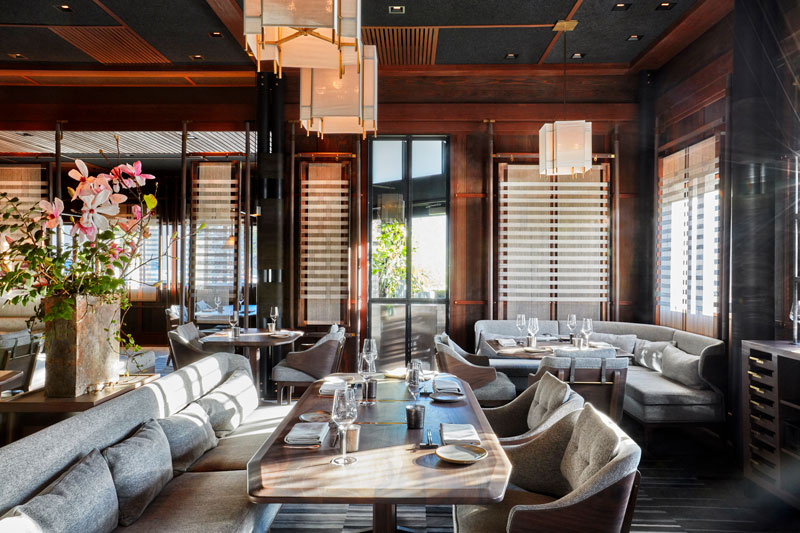
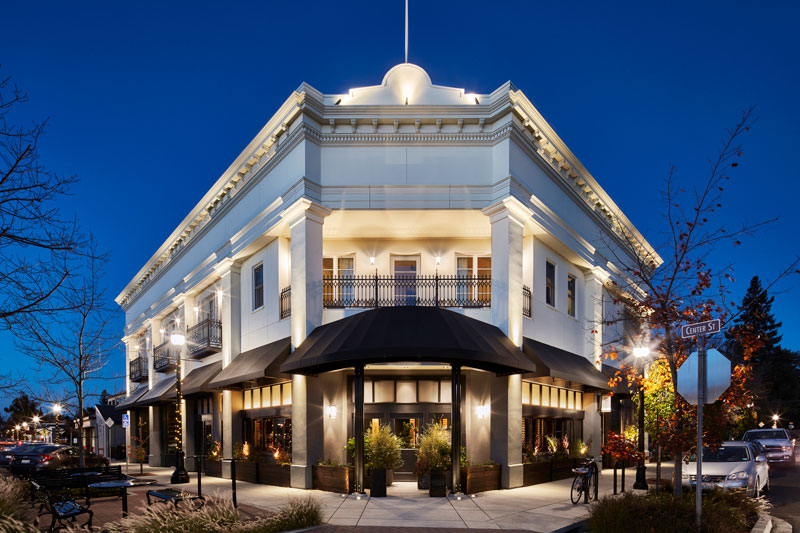
The Devil’s in the Details. Nature or Nurture?
CKC: I think it’s sort of more natural. My relationship with Japan and Japanese culture goes back to when I was nine years old growing up next to a big Japanese community in Los Angeles and then living in Japan as an adult. My parents were also doing business with people from Japan quite a bit when I was a kid. We even had their Japanese business partners, living with us for a bit. I was always just fascinated by, and in love with Japanese culture. What I was most drawn to was how important the craftsmanship and artistry were in all the different forms. Whether it was culinary, knife making, potters, or lacquerware artisans, this was always very attractive to me, how much people cared about their craft and about all the details. I also had great mentors who instilled this in me early on.
I look at what we do at Single Thread less like running a restaurant every day and more like throwing a dinner party, and just wanting to get all details right. That’s just something that we’ve always loved; creating experiences for people. We love this in our personal lives as well. This is what drives both Katina and I. Oftentimes chefs are so focused on making amazing food, that the details of the guest’s experience are not really in focus. For us, first and foremost, we are hospitality people who want our guests to have a good experience and food is just one part of that experience.
This Chapter Of The Story. Now.
CKC: I worked with Heston Blumenthal at The Fat Duck in the UK for five years. I ran all the R&D there. It was really fun because we would approach everything very creatively, sometimes like a fairy tale, and tell all these elaborate stories with the menu. It was really great to go to these lengths and add theatrical elements for the guests like, ‘Hey! We’re doing something special at your table tonight with liquid nitrogen!’
At Single Thread, we are really focused on the story we’re telling about today. This is today. This is what’s happening on our farm. This is what’s happening in Sonoma County. This is what’s in season. These are the flavors, the ingredients, the flowers of this moment, all around you. So you are partaking in something that is now. Something that was different yesterday and will be different tomorrow. This is today. We’re all here together.
We have a lot of guests who come 4 to 8 times a year to experience the different micro seasons. You feel like you’re reading a different chapter of the story. We’re not trying to be too showy and certainly not gimmicky. Let the food and experience be a little bit more straightforward but to really give people almost permission to connect and be present.
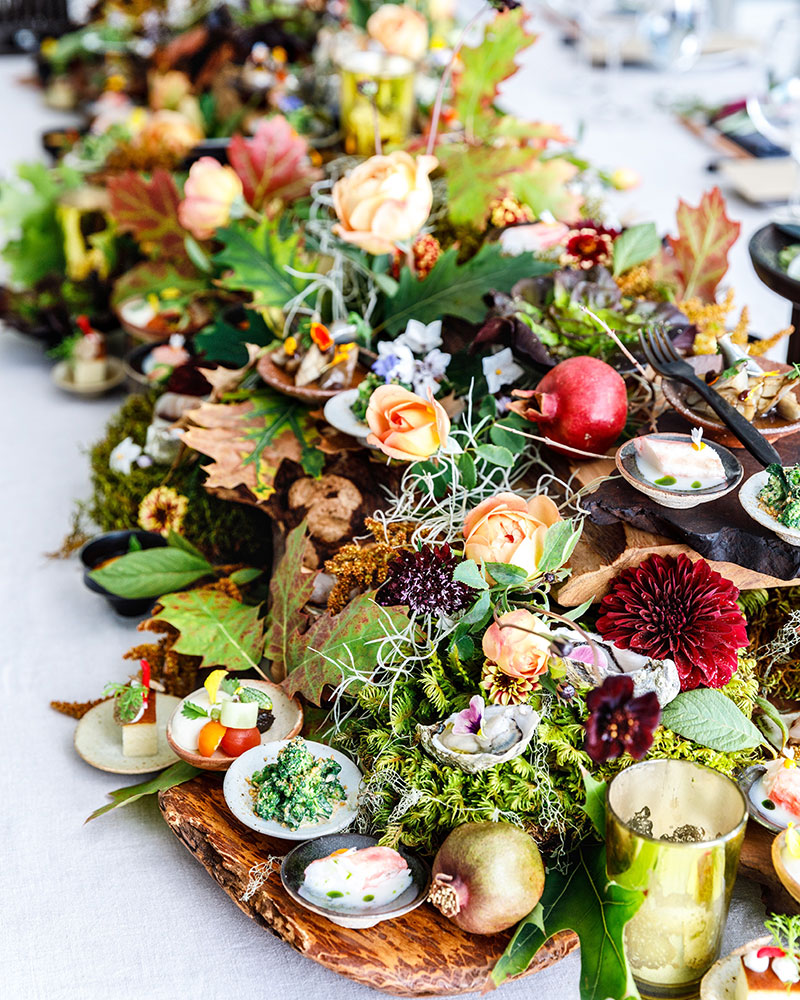
Navigating The Three Michelin Star
CKC: What we were doing the day before the Three Michelin Stars is the same as what we were doing the day after, and the same that we’re doing, almost two years later. Obviously, we’re always trying to evolve and get better, but by and large, we opened with a very specific vision. I’ve worked at Three Michelin Star restaurants for most of my career, so I understand the expectations, the level, and the consistency; the quality that needs to be maintained.
Of course, it was thrilling receiving the stars. And there are also elements of it that become scary because things get real when you have something to lose. But we take it all in stride and I think we have the experience and the maturity to navigate those waters. But it’s not why we do what we do.
Accolades are amazing, and we’re so thankful for them. They are incredible for the business and for the team to acknowledge, ‘Hey, this is something we’ve earned together!’ And then we have to come back here and achieve it every day. Because, what’s unique about Michelin is it’s not an award that you won for something that you did in the past and then you put it up on the shelf, like ‘That’s done.’ It’s not a Grammy, right? You have to earn it every day. There isn’t a day where we can be off our game. So, it’s nice to have that fire under you all the time.
We just say everyone’s a Michelin Star inspector. Everyone is important. They’ve taken their time. They’ve taken their money and they’re invested in this experience. I don’t stress out so much in the dining room. We’re either doing a good enough job or we aren’t. Michelin Inspectors generally come about 15 times a year. We have 17 tables a night. So you do the math. It’s pretty frequent!
Covid Pivot Japanese Garden
CKC: Last year when we had the initial closure we did a takeaway program that was incredibly creative, popular and fun. However, it was absolutely impossible from an
economic standpoint to make it work. All we wanted out of it was to keep everyone employed and keep everyone’s benefits intact. So we did that which was really great.
And then we partnered with our friends at Kistler Vineyards and did a four-month outdoor service in a tent: an Autumn Dinner Series in the vineyards, consisting of a 10-course menu paired with favorite wines from the region. The
designer Ken Fulk, who’s now our business partner /
designer in our new venture Little Saint in Healdsburg, CA, created this crazy Japanese forest in the wintertime and we built a menu centered around rustic Japanese style hotpot dining. It turned out to be exactly what people wanted. This type of cooking is kind of my area of expertise. I spent two years writing a cookbook (Donabe: Classic and Modern Japanese Clay Pot Cooking) about it so we were kind of, you know, taking both the guests and our team on that journey, which was a lot of fun. Then we finally we moved back indoors, and now we’re back to doing what it is that we do. We’re very busy right now. We are booked out, every single day, every single table. It is just crazy and amazing.
Elevating With ‘Care’
CKC: I just think we’re really sensitive to what people want. What we’ve seen is that people really want to relax, they want to enjoy, they want to celebrate. They want to be
removed from the stresses of all the stuff that’s going on right now. They want to be taken care of. They want to have fun. This is just consistent with what we have always done.
When I greet a guest, as they’re coming into the restaurant and welcoming them, talking to them, I always say very naturally… intuitively, ‘Have fun tonight.’; just constantly reminding people that this is not a serious thing. They’re not here to experience, me or the restaurant. They’re here to experience themselves.
People want and need to be taken care of. I think a lot of people feel very much on their own to figure things out and navigate the world, right now. It’s exhausting for all of us. So to have a place where people are genuinely here to take care of you feels good, it elevates the food and the wine and everything.
What It All Means
CKC: We’re really big on mentorship here, trying to train the next generation of thoughtful leaders for the industry. It’s not like we’re curing disease or solving the world’s problems. But I ask myself, ‘What are we doing? What does it all mean?’ Of course, it’s our livelihoods and everything, but in the broader context, what we keep coming back to is people need moments in their life where they can just relax, enjoy something beautiful, connect with the seasons, connect with the food. It’s not about us. This is about them. If you focus on having the guests have the most amazing experience they can, then all the things that you want out of it will come very naturally.
Every night I get to watch people enjoying themselves: family getting together, old friends celebrating and reminiscing and laughing around the table. It’s so nice when they come into the kitchen and say, ‘Thank you for giving us the time and space to really connect. I can’t remember the last time we just laughed like this and enjoyed an experience together.’ You know people will come in and say, ‘Oh, we really enjoyed the food’ and ‘Oh, your staff is so nice and attention to detail is great and just thanks for putting together an experience where we could just really be transported somewhere else’. This is what fuels me. Takes me a while to fall asleep because I am still excited about what happened that night at the restaurant. It is all very rewarding.





